Urban Inequality Meets Climate AI: DEPRIMAP at the 2025 Nordic Workshop in Gothenburg
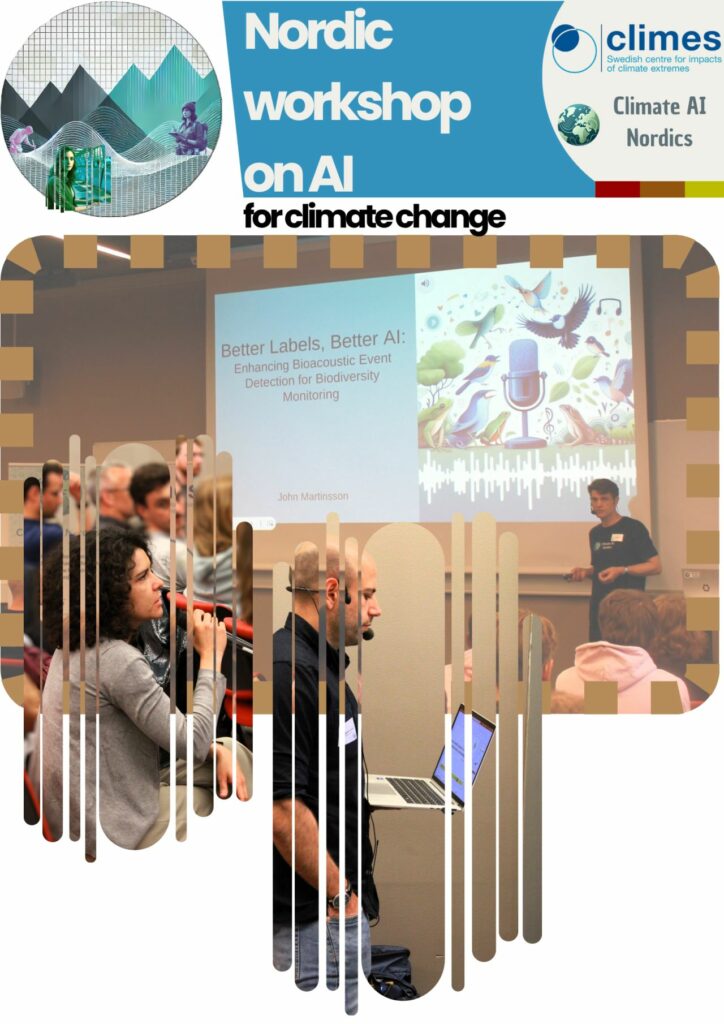
On May 13, 2025, DEPRIMAP participated in the 2025 Nordic Workshop on AI for Climate Change, held in Gothenburg, Sweden. The one-day, in-person workshop brought together researchers from across the Nordic region and beyond to explore how artificial intelligence can be harnessed to address some of the most pressing challenges of our time, from climate extremes and biodiversity loss to the green transition.
(Image credit: Sakıp Murat Yalçın via LinkedIn)
Representing DEPRIMAP, Stefanos Georganos and Sai Ganesh Veeravalli joined this vibrant exchange of ideas, highlighting how AI and geospatial data can be used to understand and respond to urban vulnerability in the face of climate change.
🛰️ Our Contribution: Unequal Cities in a Challenging Climate
As part of the oral presentation program, Stefanos Georganos presented a talk titled ‘Unequal Cities in a Changing Climate: AI and Geospatial Approaches to Urban Resilience‘. The presentation focused on the intersection of urban deprivation, climate exposure, and data scarcity, particularly in Sub-Saharan African cities, where vulnerable populations are often excluded from conventional planning and modelling frameworks.
Drawing on DEPRIMAP’s and associated network broader research, the presentation introduced methods to:
- Map Thermal Discomfort Areas (TDAs), defined by the overlap of high heat exposure and high urban deprivation.
- Use open Earth Observation data to model land surface temperatures and infrastructure gaps.
- Apply deep learning models to generate gridded population and deprivation estimates.
- Highlight how nighttime light proxies can reveal disparities in electricity access across informal settlements.
- Integrate citizen science and human perception through visual annotation and ranking methods to improve model training.
The presentation made a strong case for AI-informed geospatial modelling as a pathway to inclusive urban adaptation, especially as extreme heat, energy insecurity, and unequal service distribution continue to worsen under climate change.
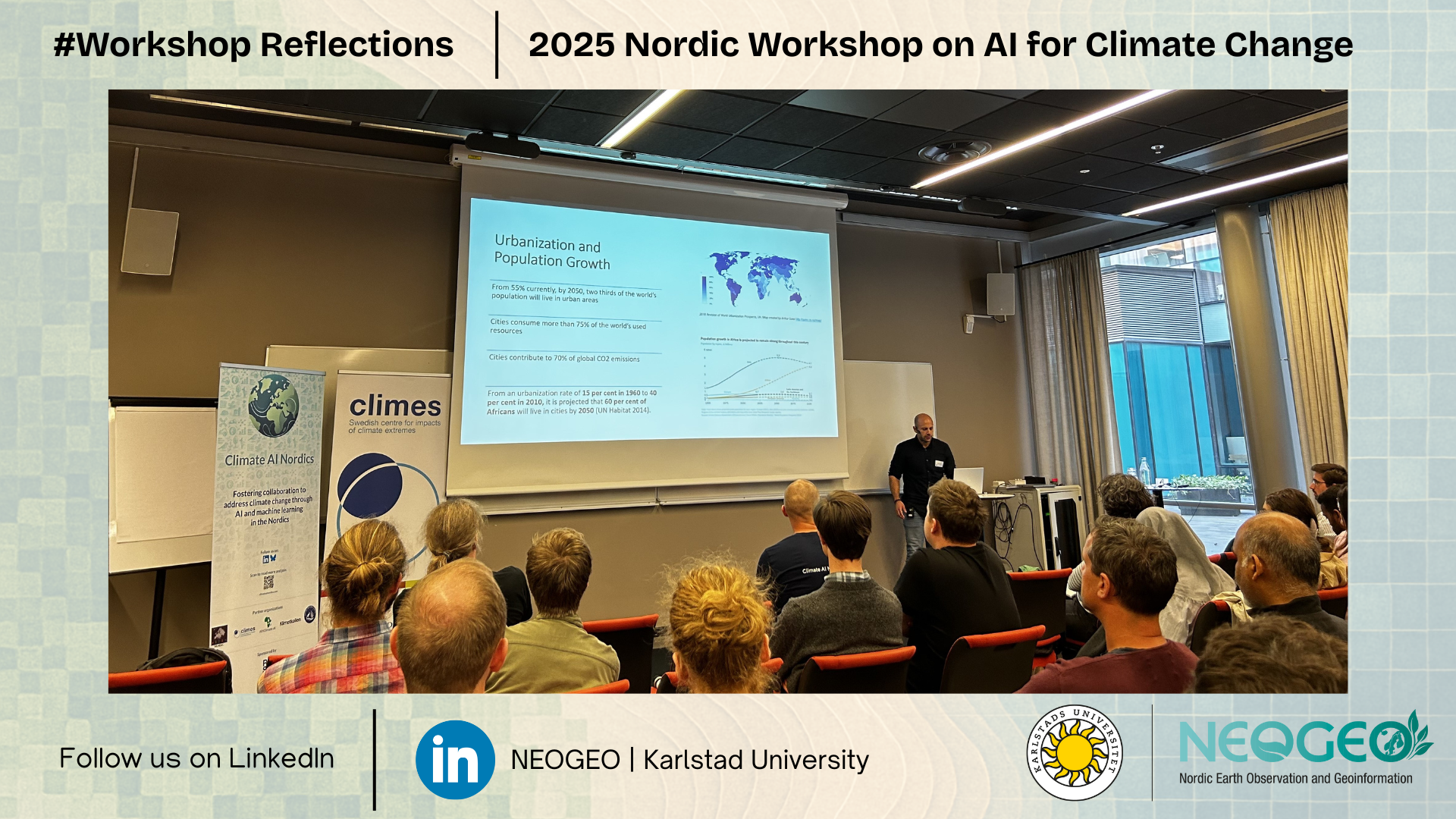
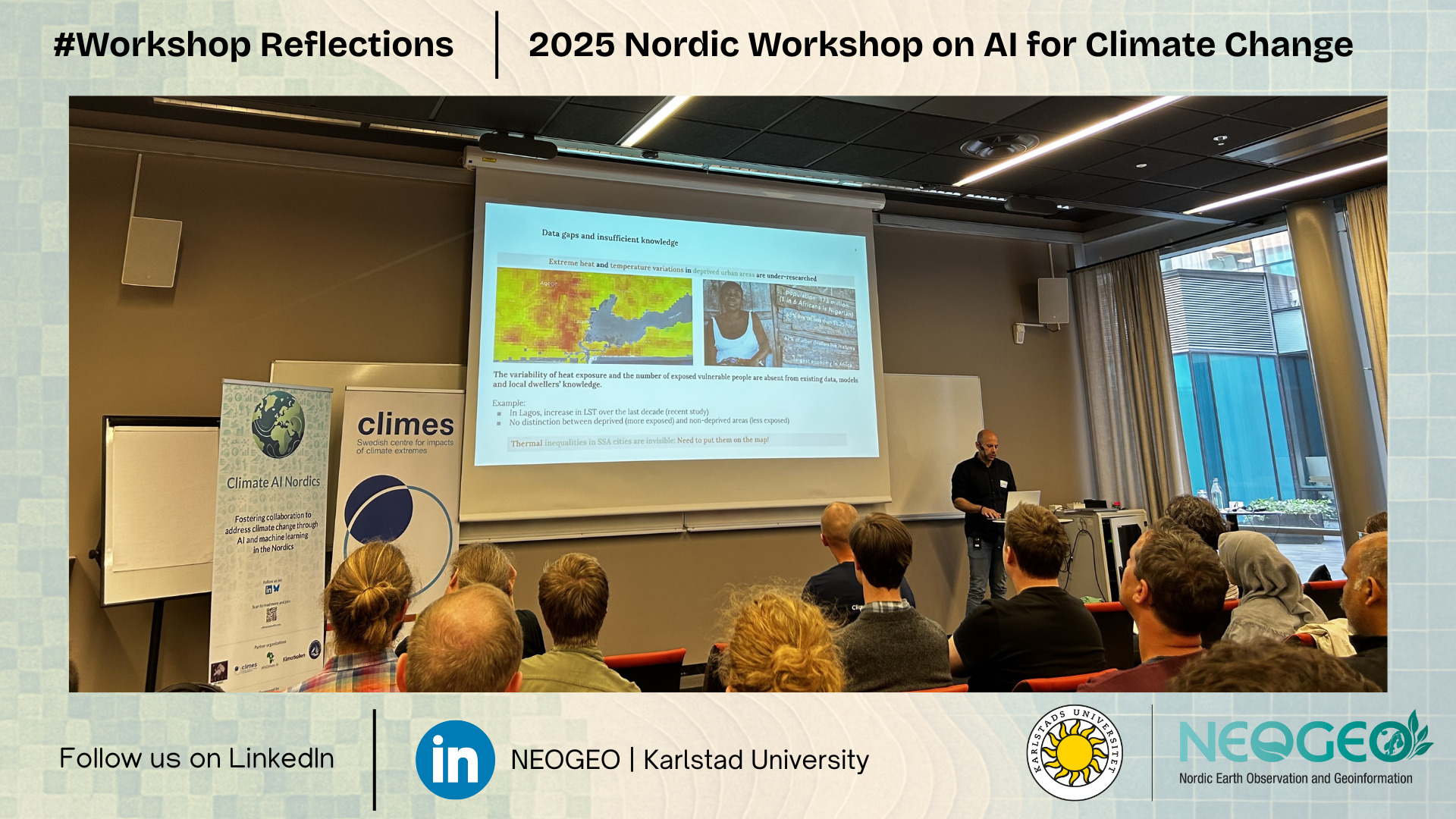
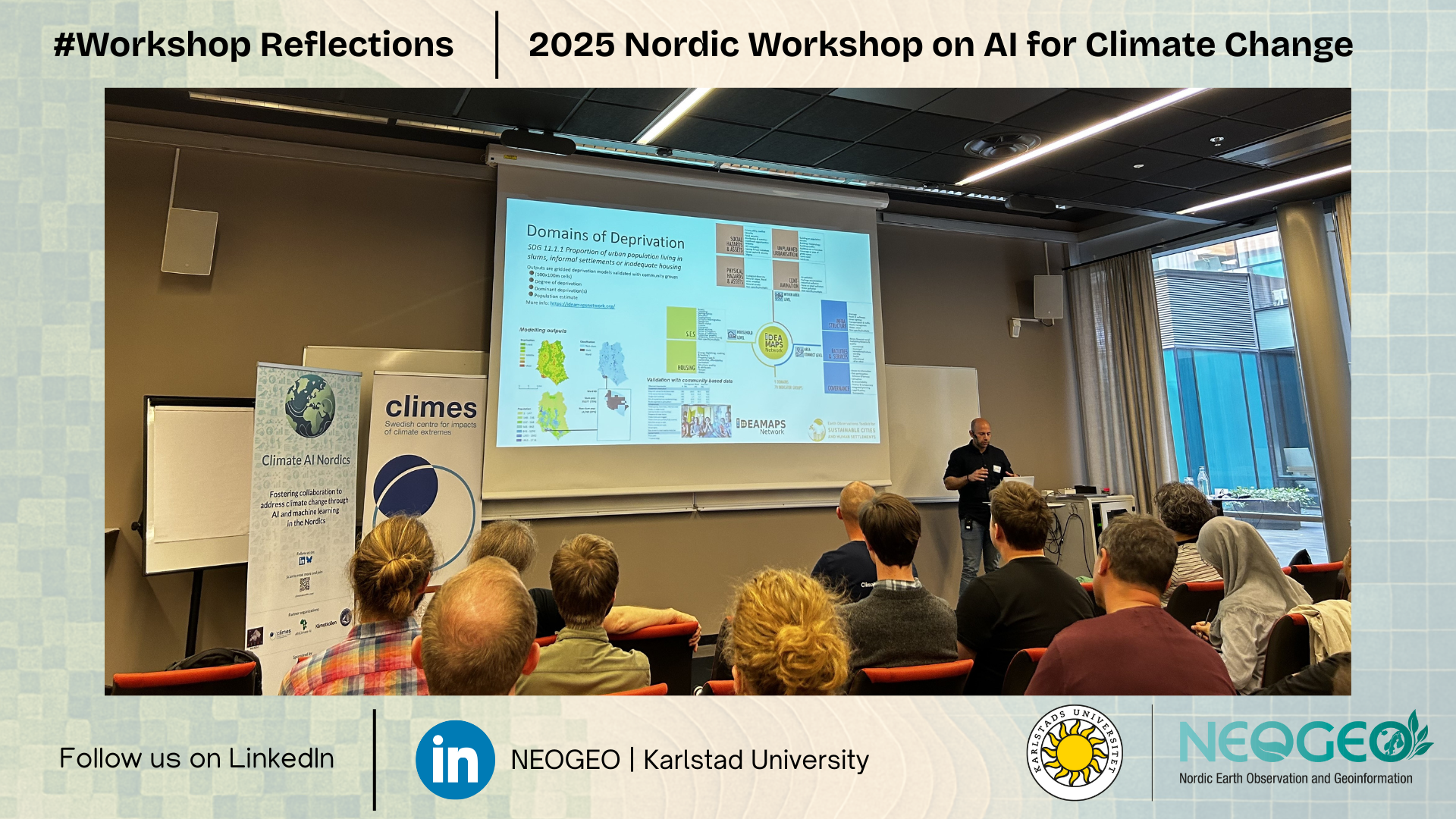
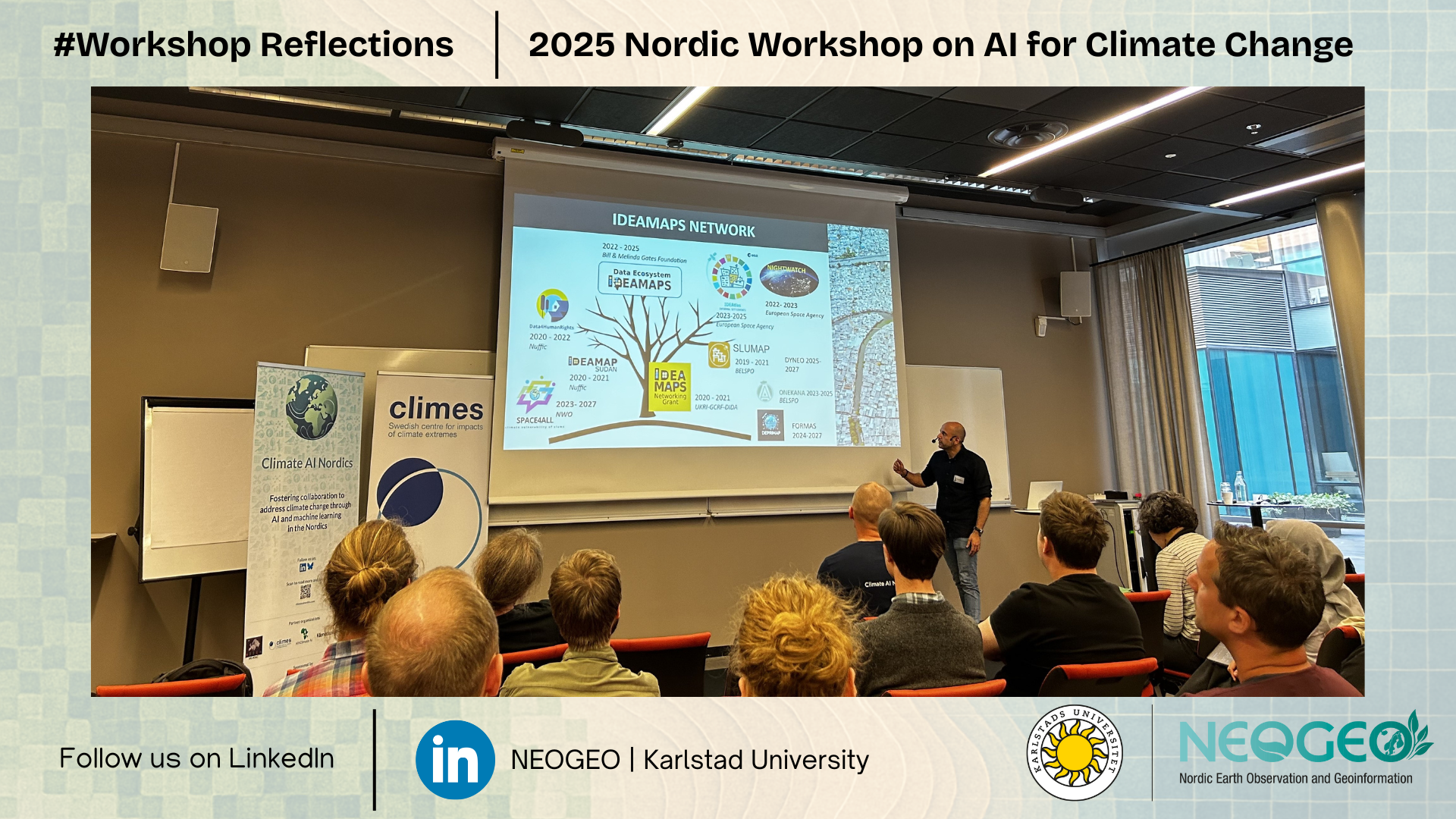
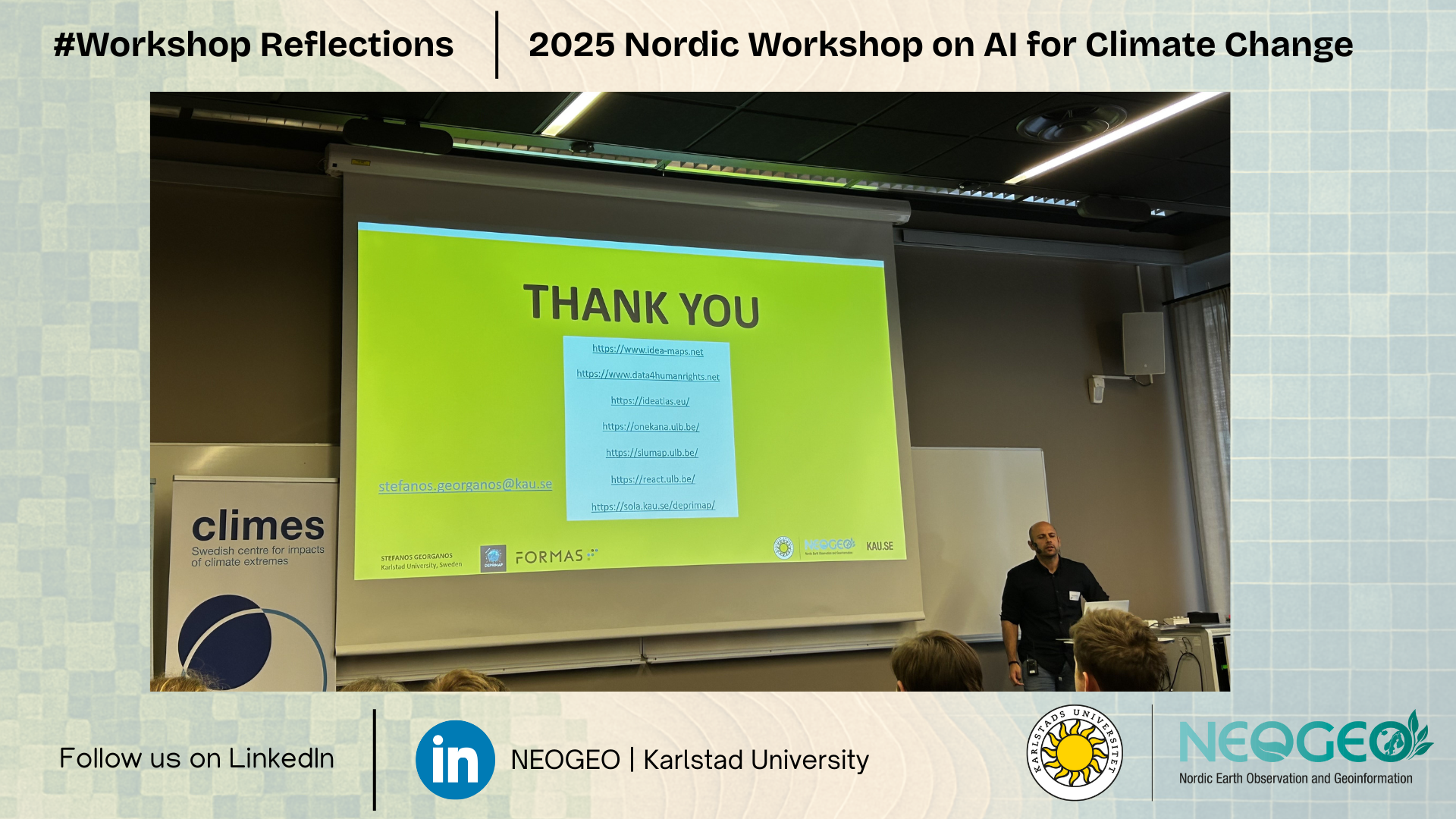
🌍 Reflections from the Workshop
The workshop’s agenda covered a broad range of themes, from bioacoustic AI for nature monitoring to machine learning for atmospheric chemistry, large language models for climate event extraction, and satellite data fusion for biodiversity conservation. This diversity underscored a shared goal across disciplines: to use AI not just to analyse, but to act on climate complexity.
For DEPRIMAP, several sessions offered direct resonance, such as:
- Dan Stowell’s talk on Bioacoustic AI, showing how AI can remain sensitive and non-invasive in environmental monitoring.
- Nico Lang’s work on learning from global EO datasets, demonstrating the potential for globally generalizable models.
- Shorouq Zahra’s discussion on LLM challenges, highlighting the importance of data structuring for climate insights.
These perspectives reinforced DEPRIMAP’s vision: that data equity, spatial resolution, and community validation must go hand-in-hand with technical advancements in AI.
🌐 What’s Next? Strengthening Nordic Collaborations
Beyond the technical discussions, the workshop served as a meeting point for future partnerships. Conversations ranged from joint research ideas and data exchanges to potential collaboration on multi-city comparative studies using open-source models.
As DEPRIMAP aims to develop and refine its AI-based frameworks for mapping deprived urban areas and assessing climate risks, the connections made in Gothenburg offer promising directions. The workshop aligned well with DEPRIMAP’s goals to:
- Incorporate new AI methods for spatial and temporal modelling.
- Contribute to policy-relevant SDG tracking, especially in urban resilience (SDG 11)
- Expand its collaborative network with Nordic and European partners.
Closing Thoughts
We extend our sincere thanks to the organisers at Climes and Climate AI Nordics for curating a thought-provoking event and creating space for cross-disciplinary dialogue. The 2025 Nordic Workshop reaffirmed that the climate crisis demands not only smarter models but also inclusive frameworks, ones that account for social inequities, data gaps, and the lived realities of vulnerable populations.
As DEPRIMAP looks ahead to the next phase of research, including upcoming presentations at EARSeL 2025, we remain committed to advancing AI and geospatial tools that serve both scientific rigour and climate justice.
Stay tuned for upcoming publications, tools, datasets, and collaboration opportunities.
Some glimpses from the 2025 Nordic Workshop on AI for Climate Change: Link


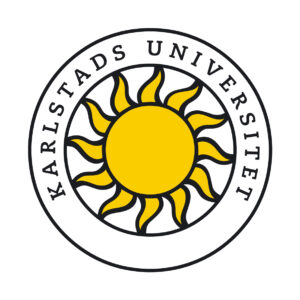
No responses yet